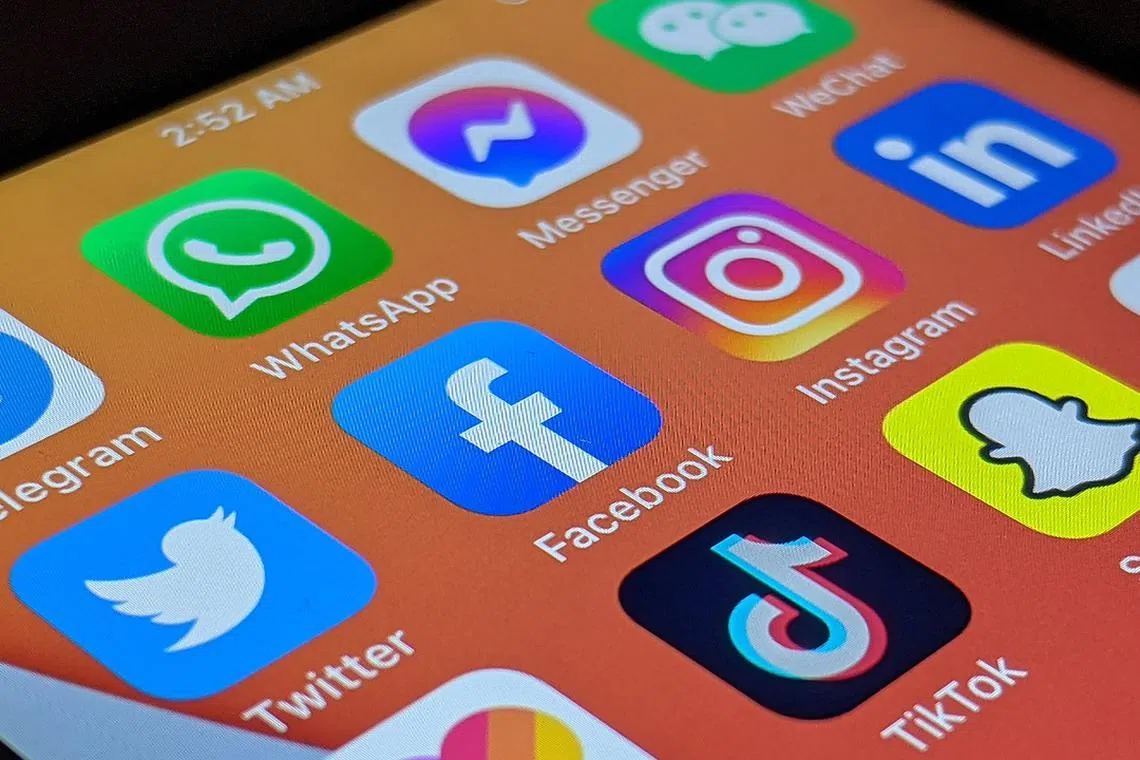Malaysia’s licensing plans for social media and messaging platforms to take effect on Jan 1, 2025
Sign up now: Get insights on the biggest stories in Malaysia

The move to foster a safer online environment comes amid concerns over freedom of speech and censorship.
PHOTO ILLUSTRATION: PIXABAY
Follow topic:
KUALA LUMPUR – Malaysia’s internet regulator said on July 27 that social media and online messaging platforms with at least eight million registered users in the country must apply for a licence effective Jan 1, 2025, to ensure a safer online environment for users.
The Malaysian Communications and Multimedia Commission (MCMC) said the new regulatory framework would help to combat the rise in cybercrime offences, including scams and online fraud, cyber bullying, and sexual crimes against children.
“This measure will create a safer online ecosystem and a better user experience, especially for children and families,” it said in a statement.
Thus, platforms such as Meta (Facebook, Instagram and WhatsApp), Google (YouTube, Google Chat), TikTok, Telegram and X must apply for a licence from the government from Aug 1.
“Failure to obtain a licence after the effective date (Jan 1, 2025) would be an offence, and appropriate legal action can be taken under the Communications and Multimedia Act,” the MCMC said.
All along, social media and internet messaging platforms have been exempted from licensing requirements.
Malaysia’s plans to license social media and messaging platforms, subjecting them to greater government oversight, has sparked increasing concern in recent weeks, with the country’s internet regulator summoned before a parliamentary select committee hearing on July 2.
The Straits Times reported on June 24
An open letter issued on June 27 by 44 organisations and 23 individual activists to Malaysia’s Prime Minister Anwar Ibrahim condemned the licensing proposal as a “blatant abuse of power” and “an attack on a healthy, functioning democracy” that will “shrink public participation”.
The letter follows TikTok’s revelation that Malaysia’s government submitted the world’s highest number of content takedown requests in the second half of 2023, with such demands increasing significantly
Amid all these are growing claims that the authorities are curbing freedom of speech and stepping up online censorship, especially on video-sharing app TikTok, the social media platform where the opposition Perikatan Nasional is strongest.
Malaysia’s 2024 World Press Freedom ranking has dropped to 107th, from 73rd previously.
A major objective of the licensing regulations is to have platforms beef up content moderation, especially in terms of understanding local languages and contexts.
Responding to growing criticism that its actions are politically motivated, the MCMC said on June 20 that over 70 per cent of its content removal requests were to curb online gambling and scams.
Malaysia has been grappling with an increase in harmful content, with the MCMC receiving over 3,400 complaints of hate speech between 2020 and 2023. During the same period, RM3.2 billion (S$922 million) was lost to online scams.
Online gambling is also estimated to cost the Treasury RM2 billion in tax revenue yearly.
When first mooting such licences in 2023, the Anwar-led administration had stated that the aim was to facilitate revenue sharing with local content producers such as news media, and to curb what the authorities considered harmful and illegal content.
But several industry and civil society representatives who attended the briefings with MCMC from April to June in 2024 told ST that there was little to no mention of digital revenue-sharing.
Instead, proposals discussed included a “kill” switch to summarily take down content deemed egregious, forcing licensees to allow their content moderation and algorithm processes to be audited, as well as to have an entity domiciled in Malaysia that would be subject to penalties under local law.
These proposals were met with pushback from the platform owners themselves as well as civil society.


